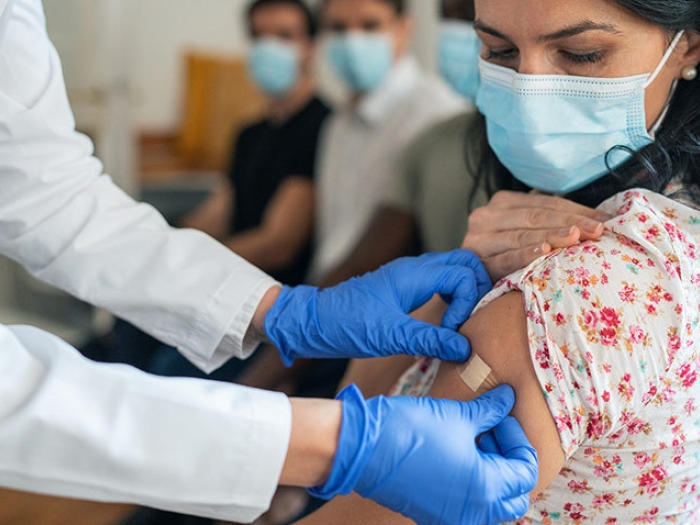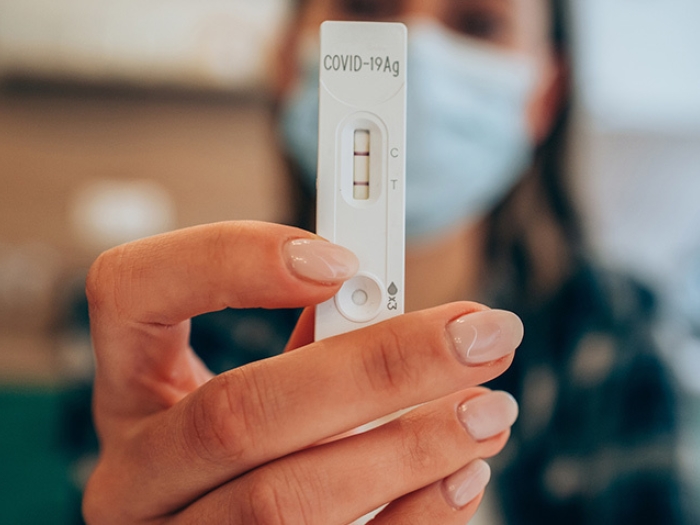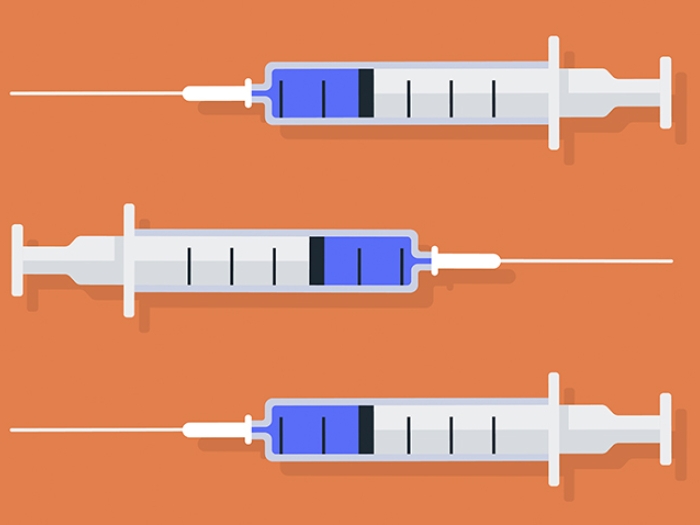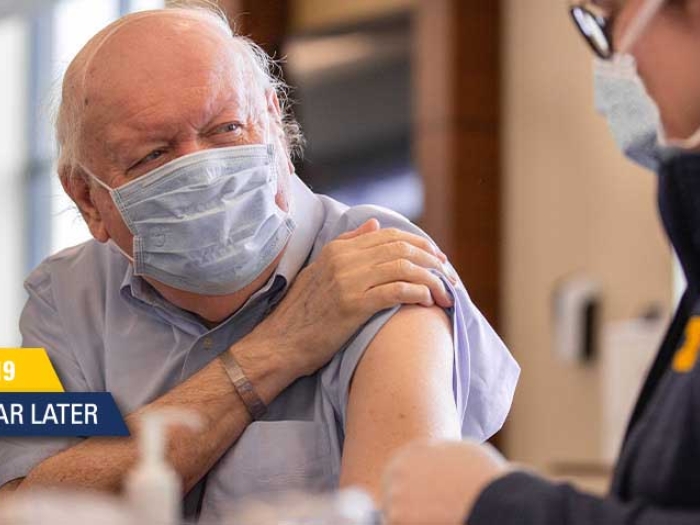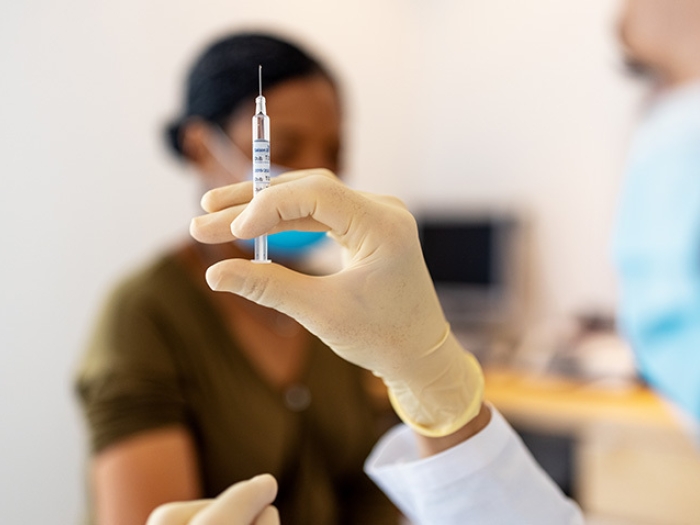You’ve done your part to protect yourself, your loved ones and your community. What can you do now?
3:25 PM
Author |
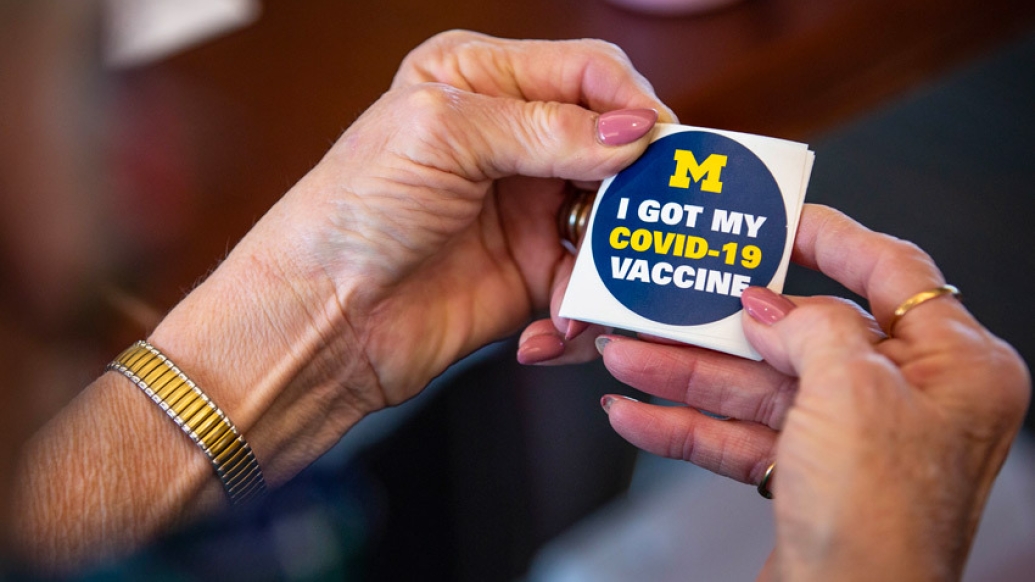
Editor's note: Information on the COVID-19 crisis is constantly changing. For the latest numbers and updates, keep checking the CDC's website. For the most up-to-date information from Michigan Medicine, visit the hospital's Coronavirus (COVID-19) webpage.
This article was updated May 5, 2021.
First of all, before anything else: Be proud.
Breathe easier.
Walk or sit taller.
Let go of some of the worry that's lurked in the back of your mind for the past year.
Pat yourself on the back (if you just got vaccinated in the last day or two, you may need to use the arm that your shot didn't go into…).
Accept the thanks of health care providers at Michigan Medicine and elsewhere, who are caring for new, mostly younger, COVID-19 patients who caught the virus and got seriously ill before they could get vaccinated.
Now that you've done all that, here are seven practical tips for living your post-vaccinated life:
1. Remember that COVID vaccination is a journey.
What you can do now depends on where you are on that journey. It takes time for your body to build up your immunity to the coronavirus.
If you've had the first dose of a two-dose vaccine (Pfizer or Moderna) but not the second, you're still on that journey. Same thing if you're still less than two weeks out from your second dose, or less than two weeks out from your only dose of the Johnson & Johnson vaccine. You're almost there!
In the meantime, take the same precautions as an unvaccinated person, though you're already more protected than they are. As soon as you're fully vaccinated for COVID, you'll have more freedom! Keep reading to find out what that means.
Like Podcasts? Add the Michigan Medicine News Break on iTunes, Google Podcast or anywhere you listen to podcasts.
2. You can do some pre-pandemic activities again – and the list will keep growing with time
The vaccines against COVID-19 are incredibly powerful – better than our vaccines against many other diseases at preventing serious illness and death. But they don't give you superpowers. So experts have taken a "go slow" approach to post-vaccine recommendations. As we learn more about the power of these vaccines to protect not only you but those around you, the list of what you can do will grow.
SEE ALSO: Confused About What to Do After a COVID Exposure? Start Here
"Being vaccinated does not mean that the pandemic is over. It isn't," says Laraine Washer, M.D., medical director of infection prevention and epidemiology for Michigan Medicine. "Being vaccinated does mean that you can begin to engage in activities without a mask, such as visiting with vaccinated friends – as long as that friend does not live with people who are at high risk of severe COVID infection and not yet vaccinated."
The Centers for Disease Control and Prevention has a page that describes what fully vaccinated people can do safely – including traveling. It also describes things that fully vaccinated people don't have to do, such as going into quarantine if they get exposed to someone who has COVID-19, and wearing a mask outdoors except in crowded situations. They will update it as more information comes in from studies of fully vaccinated people.
The state of Michigan has also issued new guidance that allows fully vaccinated individuals to go without a face mask at indoor or outdoor residential gatherings, unless they have symptoms of COVID-19.
3. You've got a new "force field" around you – but it's not impenetrable.
With your immune system primed to spot coronavirus, you're far more protected than you were before. Recent studies show the vaccines are very good at preventing serious illness and death from COVID-19. But we're still learning how good they are atfor stopping mild illness, or stopping the spread of virus from a vaccinated person who gets exposed to a sick person.
People who had a weak immune system before they got vaccinated should keep in mind that their body may not produce as strong of a response to the vaccine, so they should continue to take care to avoid infection.If there's a lot of COVID activity in your area – which is the case in much of Michigan right now – you could still get a "breakthrough" infection. But if you get sick, it will most likely be much milder than it would have been if you hadn't gotten vaccinated. That's what happens every year with the flu vaccine.
Being vaccinated does not mean that the pandemic is over. It isn't.Laraine Washer, M.D.
Amanda Valyko, M.P.H., director of Michigan Medicine's Infection Control and Epidemiology department, says, "You may be interacting with a variety of people with that are not yet vaccinated or even not complying with mask or distancing recommendations. With the large amount of COVID-19 circulating, continue to take steps to reduce your risk."
4. You can join the effort to track COVID vaccine reactions.
The thousands of people who volunteered to get the vaccines in clinical trials last year made it possible for you to get your vaccine this year.
Now you can do your part.
All it takes is responding to a few text messages, or telling your health care provider if you experience something unusual.
Do this by signing up for the text-based V-Safe program run by the Centers for Disease Control and Prevention. Just answer the quick surveys they'll text to you in the days and weeks after your vaccination(s).
Your answers will join answers from millions of others to increase what we know about vaccine reactions, both common and rare. The CDC has started to publish reports based on the data it has collected through V-Safe, including a recent paper with data from more than 3.6 million people who replied to a text survey at least once after receiving the Pfizer and Moderna vaccines through February, and a paper about reactions from nearly 350,000 people who received the Johnson & Johnson vaccine in March and early April. MORE FROM MICHIGAN: Sign up for our weekly newsletter
The studies of more common reactions confirm what the clinical trials showed: that the most common reactions were brief mild ones such as sore arms, that second doses were more likely to cause a reaction, and that older people were less likely to have a reaction. The J&J data also show that about 1 in 4 vaccinated people had to take a break from normal activities on the day after vaccination, and 1 in 7 had to take that day off from work..
You can also make sure your doctor or other provider knows you got vaccinated, and tell them if you experience any unusual symptoms. In fact, the recently announced rare clotting concern associated with the Johnson & Johnson vaccine started with six reports to the U.S. Food and Drug Administration out of nearly 7 million people who had received that vaccine. Learn more about vaccine safety monitoring.
5. You can help those who are on the fence about vaccination.
The faster we can get most U.S. adults and teens vaccinated, the faster we can go back to normal.
The problem is, some adults are still not sure they want to get vaccinated, or even have made up their minds against it.
They may have heard false claims about the vaccines, or may worry about how they'll react to the vaccine because of their health. Or they may have only just become eligible, or gave up trying to find a vaccine appointment because it seemed too complicated.
Or they may at least feel comfortable expressing their concern out loud so they can get questions answered. Or they may be inspired to find an appointment now that eligibility has expanded and COVID vaccine supply has improved.
The word of a friend, relative or neighbor carries more weight with some people than the voices of hundreds of national experts with degrees after their names. By sharing your experience with people you know, and helping them get solid information, you can make a real difference in the total vaccination effort.
Use this updated guide to help answer questions that others may have about vaccination, based on claims they might have heard.
6. You're spared the inconvenience of quarantining after an exposure.
Staying completely home for 10 to 14 days is no one's idea of a good time. It can cost people lost wages, lost school time, extra costs to have things delivered, and more.
But that's what unvaccinated and partly vaccinated people have to do if they get close to a person who turns out to have COVID-19, whether or not they have symptoms. Here are the full details on who has to quarantine or isolate after such an exposure to COVID-19.
But not you! If you're vaccinated, and you haven't developed symptoms, you're good to go.
7. You can make up funny social media posts or play a fun game with friends.
It started on Twitter, but it's spreading to other social media platforms and you could make a game of it, too.
Start with the phrase "Being vaccinated does not mean…" and then add something that's a thinly veiled summary of a book, movie, television show, song or fairy tale, without naming it.
For extra fun, add something that the main character should have done to be safe or have a happy ending. See if your friends can guess what it is.
For instance: "Being vaccinated does not mean you can go to the Royal Ball in a coach made from a pumpkin, wearing a gown and glass slippers made by your Fairy Godmother. You have to hide the key so your Evil Stepmother can't lock you in your room when she realizes what you've done."
Or, "Being vaccinated doesn't mean you can climb up the waterspout using your eight long legs. You should check the weather forecast first."

Explore a variety of healthcare news & stories by visiting the Health Lab home page for more articles.

Department of Communication at Michigan Medicine
Want top health & research news weekly? Sign up for Health Lab’s newsletters today!
